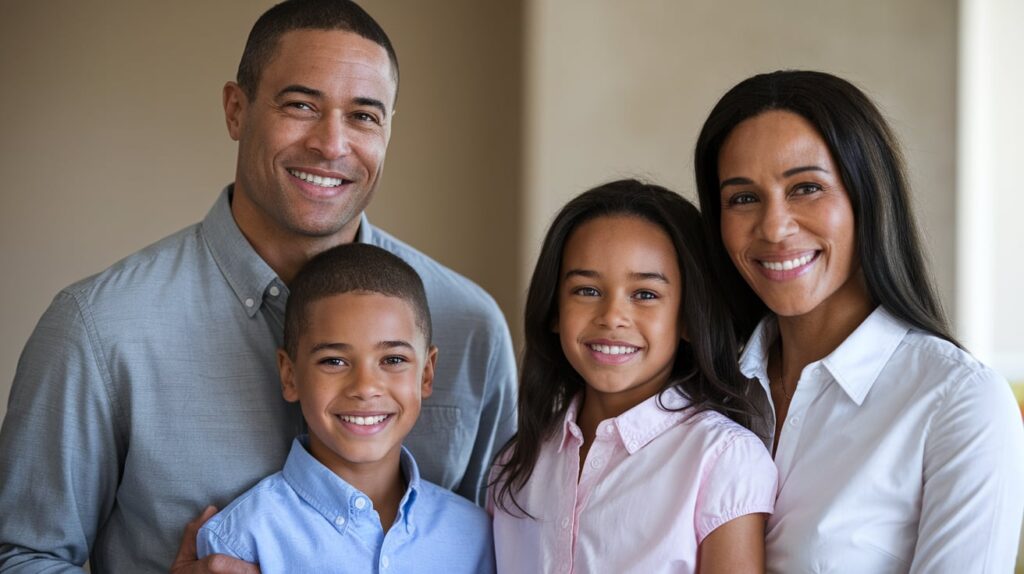Some Key Steps and Strategies follow when helping children affected by domestic violence are as follow:
Creating a Safe Environment for Children
Ensuring that children have a safe and stable environment is the first step. This includes physical safety and emotional security.
Physical Safety:
Immediate Protection: If a child is in immediate danger, it’s crucial to remove them from the harmful environment. This might involve contacting law enforcement or child protective services.
Safe Housing: Ensuring that the child has a secure place to live is essential. This could be with a trusted family member, in a shelter, or through foster care if necessary.
Safety Planning: Develop a safety plan that includes steps the child can take if they feel threatened. This might involve identifying safe places to go, people they can trust, and emergency contact numbers.
Emotional Security:
Consistent Routines: Establishing a predictable daily routine can help children feel more secure. Regular mealtimes, bedtimes, and activities provide a sense of normalcy.
Open Communication: Encourage children to express their feelings and reassure them that it’s okay to talk about their experiences. Listening without judgment is key.
Reassurance and Stability: Children need to know that they are loved, and that the violence is not their fault. Providing consistent emotional support can help them feel more secure.
Supportive Relationships:
Trusted Adults: Ensure that children have access to supportive adults who can provide guidance and comfort. This could be a relative, teacher, counselor, or family friend.
Peer Support: Encourage children to build healthy friendships with peers who can offer support and companionship.
Educational Stability:
School Environment: Maintaining stability in the child’s education is important. If possible, keep them in the same school to avoid additional disruptions.

School Support Services: Utilize school counselors and support staff who can provide additional resources and support for the child.
Access to Resources:
Counseling Services: Professional counseling can help children process their experiences and develop coping strategies. Look for counselors who specialize in trauma and domestic violence.
Community Programs: Engage with community programs that offer support for children and families affected by domestic violence. These programs can provide resources, activities, and a sense of community.
Legal Protections:
Restraining Orders: In some cases, obtaining a restraining order against the abuser can provide an additional layer of protection.
Legal Advocacy: Work with legal advocates who can help navigate the legal system and ensure that the child’s rights are protected.
Creating a safe environment for children affected by domestic violence involves addressing both their physical and emotional needs. By providing stability, support, and access to resources, we can help these children heal and thrive.
2. Counseling and Support: Professional counseling can help children process their experiences and develop healthy coping mechanisms. Support groups can also provide a sense of community and understanding.
Counseling and support play a crucial role in helping children affected by domestic violence. Here’s a detailed look at how these interventions can make a significant difference:
Counseling and Support for Children Affected by Domestic Violence
Individual Therapy:
Personalized Attention: Individual therapy provides a safe space for children to express their feelings and experiences one-on-one with a trained therapist. This personalized attention helps them process trauma at their own pace.
Coping Strategies: Therapists can teach children specific coping strategies to manage anxiety, fear, and other emotional responses to their experiences. Techniques might include mindfulness, relaxation exercises and cognitive-behavioral strategies to reframe negative thoughts
Group Therapy:
Shared Experiences: Group therapy allows children to connect with peers who have had similar experiences. This can reduce feelings of isolation and help them realize they are not alone.
Supportive Environment: In a group setting, children can share their stories and support each other, fostering a sense of community and mutual understanding
Family Therapy:
Healing Relationships: Family therapy involves the non-offending parent and the child, focusing on rebuilding trust and improving communication within the family. This can strengthen the family unit and provide a more supportive home environment.
Addressing Dynamics: Therapists can help families understand and change unhealthy dynamics that may have developed due to domestic violence.
Trauma-Informed Care:
Understanding Trauma: Trauma-informed care involves recognizing the widespread impact of trauma and understanding paths for recovery. It emphasizes safety, trustworthiness, peer support, collaboration, and empowerment.
Responsive Practices: Care providers use trauma-informed practices to create environments that are physically and emotionally safe for children. This approach helps children feel more secure and supported
Support Groups:
Community Support: Support groups for children and their non-offending parents provide a community of individuals who understand their experiences. These groups can offer practical advice, emotional support, and a sense of belonging.
Educational Workshops: Many support groups also offer educational workshops on topics like healthy relationships, self-esteem, and coping mechanisms
School-Based Programs:
Accessible Support: Schools can provide accessible support through counselors and psychologists trained in dealing with trauma. These professionals can offer individual or group counseling sessions during school hours.
Educational Stability: Maintaining educational stability is crucial. School-based programs can help children stay engaged in their education and provide a sense of normalcy and routine
Community Resources:
Holistic Support: Community programs often provide a range of services, including counseling, legal assistance, and housing support. These resources can address multiple needs and help stabilize the family environment.
Recreational Activities: Engaging in recreational activities through community programs can help children build positive experiences and develop new interests and skills
Benefits of Counseling and Support
- Emotional Healing: Counseling helps children process their emotions and experiences, reducing symptoms of trauma such as anxiety, depression, and behavioral issues.
- Improved Relationships: Therapy can improve relationships within the family, fostering a more supportive and nurturing environment.
- Resilience Building: Through counseling and support, children can develop resilience, learning to cope with adversity and build a positive future.
- Long-Term Wellbeing: Early intervention through counseling and support can lead to better long-term outcomes, including improved mental health, academic performance, and social relationships.
By providing comprehensive counseling and support, we can help children affected by domestic violence heal and thrive, breaking the cycle of abuse and fostering a healthier, more secure future
Education and Awareness: Teaching children about healthy relationships and self-worth can empower them to recognize and avoid abusive behaviors in the future.
Parental Support: Supporting the non-abusive parent is essential. They can be a crucial source of stability and guidance for the child.
Community Programs: Programs like Break the Cycle offer preventive education and resources to help young people understand their rights and build healthy relationships.
Policy and Advocacy: Advocating for policies that protect children and provide resources for families affected by domestic violence can create systemic change.
By addressing these areas, we can help children affected by domestic violence heal and grow into healthy, resilient adults. If you or someone you know needs help, there are many resources available, including hotlines and local support services.


You ought to be a part of a contest for one of the highest quality websites on the net.
I most certainly will highly recommend this website!
Hi! I know this is kinda off topic however , I’d figured I’d ask.
Would you be interested in exchanging links or maybe guest authoring a blog article
or vice-versa? My site addresses a lot of the same subjects as
yours and I think we could greatly benefit from each other.
If you happen to be interested feel free to send me an email.
I look forward to hearing from you! Wonderful
blog by the way! https://tiktur.ru/
That is no problem. I look forward to that. It will be helpful for both of us and to our audience for wider coverage
Thanks for commenting